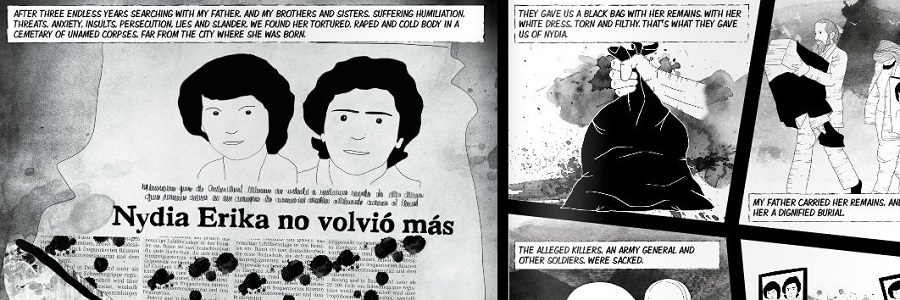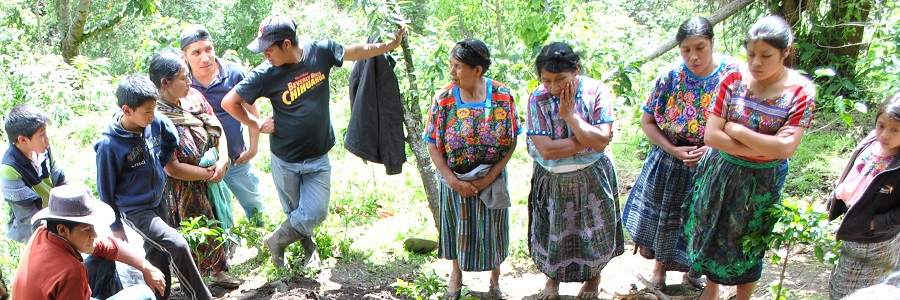On this International Day of the Victims of Enforced Disappearances PBI recognises the challenges that victims of enforced disappearances face and celebrates their victories in achieving justice.
Enforced disappearance occurs when people are abducted and their whereabouts remain unknown. It is a crime against humanity that has devastating effects on the victims, their families and entire communities. Disappearance is a multiple and continuous human rights violation that continues every day until the whereabouts of the missing person is known and as such the suffering of the relative of disappeared is also perpetual. Enforced disappearances were not only a characteristic of past dictatorships but the practise continues to this day in the countries where PBI carries out its work.
Kenya: Police killings and disappearances in the slums of Nairobi
On 23 June 2016, Willie Kimani, Josephat Mwenda, and Jospeh Muiruri went missing after leaving a court appointment. None of them were seen until one week later when their bodies were retrieved from a river showing signs of extensive torture. Willie Kimani was a human rights lawyer working with International Justice Mission. Kenyan organisations, like PBI partner, Mathare Social Justice Centre (MSJC), point out that these most recent cases are part of a greater pattern of extrajudicial executions by Kenyan police forces. The Independent Medico-Legal Unit recorded 97 such cases in 2015 alone and this is likely to be an underestimation, considering the lack of reporting. On 18 July 2016, four police officers were charged with the murder of the three victims.
PBI Kenya works closely with grassroots human rights defenders in the informal settlements of Nairobi who are working on cases of extrajudicial killings and forced disappearances by the police. One of the defenders we accompany, Ms. Ruth Mumbi, lost her brother-in-law Stephen Gichuru Mwihaki in an extrajudicial killing in May 2015. Stephen was only seventeen-years-old. MSJC is launching a campaign against extrajudicial killings in the informal settlements.
Colombia: Ongoing threats for relatives searching for justice
Andrea Torres Bautista is a Colombian lawyer and human rights defender with the human rights organization Fundación Nydia Erika Bautista (FNEB). Andrea’s aunt; Nydia Erika, was disappeared in 1987 and Andrea has since sought justice for the disappearance as well as becoming a lawyer and representing many other victims of enforced disappearances. She has faced threats and harassment for the work she carries out. On 24 June 2015 Andrea Torres Bautista received a threatening phone call. The voice on the phone said;
“[…] didn’t you understand that you should stop bothering us, we are going to kill you, but first we will rape you so that you respect men”
In 2016 PBI Colombia produced The White Dress; a graphic novel recounting the story of Nydia Erika Bautista and her family’s struggle for justice. PBI provides protective accompaniment to Andrea Torres Bautista and the victims she represents.
Guatemala: Conflict era cases breaking the wall of impunity
More than 45,000 people were reported as disappeared during Guatemala’s 36-year internal armed conflict. 31 August 2016 marks seven years since the historic sentence condemning Felipe Cusanero Coj to 150 years in prison for the crime of enforced disappearance. The sentence was a watershed moment for transitional justice in Guatemala as it was the first case in which a defendant was prosecuted for the crime of enforced disappearance. The trial paved the way for other transitional justice cases in Guatemala including cases that are ongoing today such as Theissen Molina and CREOMPAZ which has been described as the biggest case of enforced disappearance in Latin America.
PBI provides trial observation and protective accompaniment to victims groups as well as Edgar Perez Archila and the Human Rights Law Firm who were the lawyers in the Cusanero case and represent the victims in CREOMPAZ. Lawyers, victims and justice operators continue to face harassment and threats for the work they do fighting impunity for enforced disappearance and other serious human rights violations.
Mexico: Ayotzinapa two years on, still no justice still no truth
26 September 2016 will mark two years since the enforced disappearance of 43 students from Ayotzinapa, Mexico. On 29 July 2016, after meetings in Washington between the Inter-American Commission on Human Rights, the Mexican Government, the families of Ayotzinapa, and the organisations that accompany them, the Special Follow-Up Mechanism was approved to proceed with the investigation and locate the 43 students. Previously, the Mexican Secretary of the Interior, accepted the creation of a group within the Federal Police which will be exclusively devoted to protecting the relatives of the students who will carry out searches for their loved ones.
In Mexico enforced disappearances are widespread with government figures reporting over 27,000 people missing or disappeared. A bill proposal for a general law on disappearances is currently under discussion between the Government, the legislative organs and civil society.
The families of the 43 students, the current students of the School of Ayotzinapa and the organisations that accompany them – among them Tlachinollan whose members receive PBI accompaniment – have suffered intimidation and threats.
Honduras: Ongoing killings and disappearances of LGBTI activists
Erick Alex Martínez Ávila was a student leader, journalist, human rights activist and member of the LGBTI Kukulcán collective. He was also an active member of the Roundtable for Sexual Diversity of the National Popular Resistance Front. Erick was found dead on 7 May 2012 with signs of strangulation, after having disappeared two days earlier. He had taken part in a demonstration on 1 May where he had handed out copies of a magazine expressing strong opposition to the Honduran coup d’état of 2009.
In February 2016 PBI Honduras put out an international alert following the killings of five LGBTI activists. From 2009 to 2016 there were more than 200 recorded murders of members the LGBTI community. Of the more than 200 cases recorded only 33 have been prosecuted.
PBI provides protective accompaniment to Asociacion Arcoiris which work with LGBTI communities at risk.





